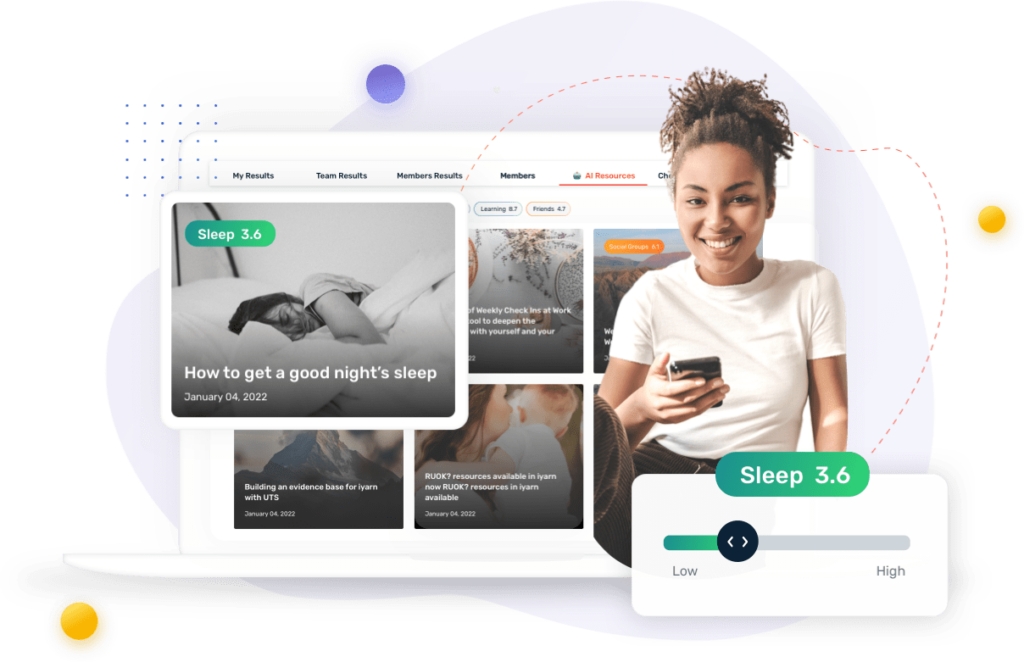Leverage the Power of Vulnerability at Work
Vulnerability is a big part of authenticity and connection. We’re taking a deep look at the power of vulnerability and how you can apply Dr Brené Brown’s research on vulnerability to be more effective, innovative and inspirational at work.
What is Vulnerability?
Perhaps it was the TED talk of a decade ago where Dr Brené Brown put the term ‘vulnerability’ on the map.
Shortly after, Dr Brown published a series of best-selling books, including The Gifts of Imperfection, Daring Greatly, Rising Strong and Dare to Lead, each exploring vulnerability and related issues.
Dr Brown offers a definition of vulnerability:
I define vulnerability as uncertainty, risk, and emotional exposure.
With that definition in mind, let’s think about love. Waking up every day and loving someone who may or may not love us back, whose safety we can’t ensure, who may stay in our lives or may leave without a moment’s notice, who may be loyal to the day they die or betray us tomorrow – that’s vulnerability. Love is uncertain. It’s incredibly risky. And loving someone leaves us emotionally exposed. Yes, it’s scary, and yes, we’re open to being hurt, but can you imagine your life without loving or being loved?
To put our art, our writing, our photography, our ideas out into the world with no assurance of acceptance or appreciation—that’s also vulnerability. To let ourselves sink into the joyful moments of our lives even though we know that they are fleeting, even though the world tells us not to be too happy lest we invite disaster—that’s an intense form of vulnerability.
Why is Vulnerability Important at Work?
Dr Brown elaborates on the importance of vulnerability:
… What most of us fail to understand and what took me a decade of research to learn is that vulnerability is also the cradle of the emotions and experiences that we crave. We want deeper and more meaningful spiritual lives. Vulnerability is the birthplace of love, belonging, joy, courage, and creativity. It is the source of hope, empathy, accountability and authenticity. If we want greater clarity in our purpose or deeper or more meaningful spiritual lives, vulnerability is the path.
Authenticity and Connection
Vulnerability is an important part of authenticity and being present. At work and in our personal lives, vulnerability is also critical for meaningful relationships.
The willingness to share your own experiences makes you more approachable, and sharing your own experiences as a leader helps others to understand your values, approaches and decisions.
Innovation and Creativity
In the workplace, vulnerability is also closely linked to innovation and creativity: without the openness to failure, it is very difficult to achieve innovation and creativity.
Does Vulnerability Equal Weakness?
Unfortunately, vulnerability has traditionally been seen as a form of weakness. This is one of the greatest myths of vulnerability!
Again, Dr Brown:
Our rejection of vulnerability often stems from our associating it with dark emotions like fear, shame, grief, sadness, and disappointment—emotions that we don’t want to discuss, even when they profoundly affect the way we live, love, work, and even lead.
The chance to truly connect with yourself and others is perhaps the ideal motivation for vulnerability. Without vulnerability, it is very hard for other people to identify with you or understand your decisions.
It is also important to note that vulnerability for leaders is not over sharing. Where vulnerability is thoughtful, accessible to others and even strategic, it is more likely to create trust and connection.
How Can I Become More Vulnerable?
There are several important lessons from Dr Brown’s works. Acknowledging these lessons will enable you to leverage the power of vulnerability in the workplace.
Focus on Mastery, Not Perfection
No one has all the answers. There are serious consequences of perfectionism: ‘healthy striving’ is a much better alternative.
Vulnerability takes Courage
Unfortunately, vulnerability doesn’t come easily for most of us. Vulnerability requires strength and courage.
Be Curious About Your Weaknesses
When you receive negative feedback, be curious and seek to understand the feedback instead of rejecting it. Engage with the difficult conversation about how you might do better.
Self Awareness is Critical
Ask questions of yourself to understand your behaviours, particularly the underlying emotions and patterns of thought. Understanding the reasons for your actions grant you greater ability to control.
… But Dare to be Yourself
No matter how hard you try to hide or avoid your flaws, there will always be a degree of fear and insecurity. Find confidence in your true, authentic self and face your flaws with courage.
There is No Hiding from these Conversations
These might be tough conversations, but progress is hard to achieve if you refuse to engage with the topic of vulnerability.
… So Just Move Forward
Doubt and fear will always be present. Show up anyway and move forward.
How Can Leaders Leverage the Power of Vulnerability at Work?
Lead with Empathy
It’s vital that leaders can connect not only with the experience of others, but the emotions of that experience too.
Critical skills in leading with empathy are understanding the feelings of others, communicating your understanding of that person’s feelings and being non judgemental.
Pay Attention to the Stories You Tell
We tell ourselves stories about ourselves, about others, about work, about life. These stories are always incomplete and to an extent, incomplete. Examine the stories that you tell!
Take Time to be Clear
As a leader, you should define ‘done’ and explain ‘why’. Miscommunication about deliverables, deadlines and responsibilities wastes time and effort.
Connect with Your Team
Productive relationships require a degree of care and connection.
Authentic relationships at work require the acknowledgement that people are imperfect. Recognise the unique contributions of each individual. Instead of becoming disappointed or frustrated, consider the human elements at play. Productivity and innovation are enabled by a culture where people are seen, heard and respected.
Authentic work relationships also require people to bring their whole selves to work, including personal struggles. It might be uncomfortable to express vulnerability or listen to others being vulnerable, but there are huge benefits of working through this.
Check ins are a great routine to get started.
Practice Self Compassion and Self Cafe
Leaders should be generous in their self-criticism: speak to yourself as you would a loved one. Leaders should also practice self care to ensure they’re in the best position to lead others.




